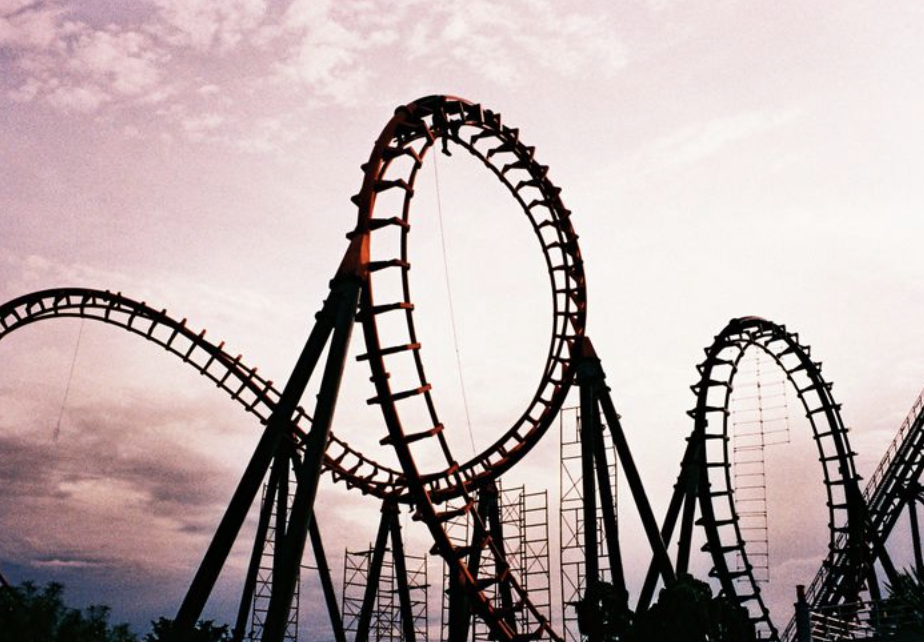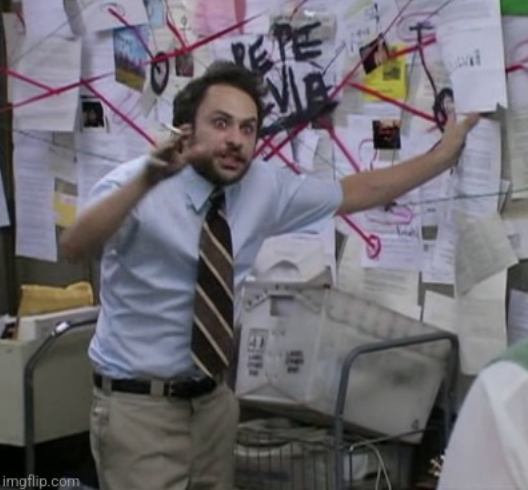When it comes to ADHD, I can only speak of my own experiences. Non-neurotypical brains all function in different ways, and everyone has different life experiences, reactions to the stimulus around them and coping mechanisms.
Tonight Mistress Sophie and I debuted our show – Kinky Points Of View in which we speak about our life experiences from different viewpoints. Sophie has autism, I’m in Camp ADHD and Miss Kim Rub is neurotypical, which the dictionary defines as (and I paraphrase) not displaying atypical thoughts or patterns of behaviour.
When asked about ADHD, a million feelings wash over me and a rush of thoughts all cram to be released. Which will escape first? They are jostling around but I need to choose the one that seems more relevant…now which one is that…
I tend to give a generalised answer and by the time I’ve thought about a million different things, the topic has shifted. This is classic ADHD for me, so I’ve carved out some space to collect my thoughts and write about my experiences with it. I hope it’s beneficial to some of my readers. Please bear in mind that this is not medical advice, just observations of my own experiences.
ADHD can feel like being pulled in dozens of different directions at once and trying to focus on too many things. Thoughts can bounce from one thing to another and feel scattered. My thoughts can feel like spaghetti junction – a horrible tangle, or a thousand interwoven fairy lights, sparkling with promise, each wanting to shine brightly and come to the fore.
If you are ADHD you may focus on the big picture and forget small but important details, like booking your train tickets. It can also look like going into a grocery store and coming out with a bag of items and then realising you forgot Aubergine which was the only thing you really wanted. ‘I do that too sometimes,’ you may think, but for someone with ADHD, this isn’t an occasional act of forgetfulness, it’s having to constantly manage your thoughts, second guess yourself and then check again, and then you’ll still probably forget something or have an internal meltdown at how you could be so daft to have walked up the stairs 5 times and come down with the wrong item each time, only to remember you don’t need that original item today anyway.

Thoughts can shift or cycle rapidly and you can obsess over how to get to a location, for example, when that is such a small part of the day and you should be planning another aspect more thoroughly.
When this strikes the best way is to sloooooow down, write lists and prioritise what’s most important….if only I could find my pen! I had one here the other day when I was chatting to Jayla on the phone about her birthday. Oh, I can’t wait for that, oooh I’ll text her and find out what the dress code is, then I better put the washing on. I’m hungry, maybe I should make a snack…this cutlery drawer is a mess, I’ll just declutter it a bit. Hmm not sure where else to put these things, I’ll just throw it all back in and sort it another day….oh dammit! How are there 15 texts on my phone I’ve missed, when did that happen?? Why’s my work phone saying 375 unread? Oh, hang on…wasn’t I looking for a pen to write a list to help me manage my time and stop getting distracted? I’ll get right onto that now. I’ll just check my Instagram first…!
This could go in circles for a while but I’ll spare you the agony!

With ADHD you can hyperfocus or lose focus quickly. If something interests me, I’ll research it obsessively. Take Baby Reindeer for example, I didn’t just watch the show, I watched it three times. Then I read dozens of articles and interviews about it, watched various YouTube clips and parodies and googled Martha’s afflictions until my eyes became blurry. I’ve had to stop myself from going off on endless long monologues about the show. It really is a compulsion when something fascinates us!
The flip side is a lack of focus and it isn’t always necessarily down to boredom. I can be in the middle of an interesting conversation and my brain will hone in on one point the other person has made and I will explore that idea in my head for several minutes until I realise they are now waiting for my reaction and I don’t quite know how to respond because my thoughts ran off on a tangent. Zoning out happens more if I’m tired or if something excites me, but it can happen anytime. This morning, I popped the shower on and started to ponder some interesting blog ideas. Several moments later I realised the water was still icy. I snapped back to my senses and realised the tap was turned to cold and I had forgotten to adjust the heat. Why do we call it zoning out? In society, we put so much focus on ‘being present’ and ‘being in the moment’ but is it so bad to sometimes ‘zone in’ to your internal monologue/duologue and experience a rich inner world? Well, only when it becomes socially rude, or inappropriate or you are meant to be paying attention to something important, which is actually most of the time in our society. So we look for ways to either mask these differences or control them.
Daydreaming or ‘zoning in” can be useful. When I daydream, I drift into imaginary conversations, my brain creates characters and sometimes they sit there and banter with one another. If I’m writing a book or article, this is when ADHD feels like my superpower as I can hyperfocus and create ideas easily or research a topic for hours without losing enthusiasm. However, being careful not to stray too far off course is imperative, as it’s taking care not to throw in something random beyond all comprehension or waffle. Editing is key!
Motivation can be hard at times, not because I can’t be bothered, it’s trying to decide what to start on first and not get distracted. If I’m in the midst of a writing spree and hyperfocused and the phone rings or someone walks in and starts chatting, the frustration is overwhelming and my stomach acids turn to molten lava. I stare blankly, watching their mouths move while my brain shrieks, ‘Don’t forget what you were going to write, don’t leave the magic zone! You may never ever be able to get back to it again otherwise. It will be gone forever!’
I’ve just completed my latest book but this is no flex. What you don’t know is that I also have at least 6 others (maybe more) I started and never finished. Maybe in future, I’ll get round to it, or perhaps I’ll just forget about them until one day I have a lightbulb moment and one of them becomes the most important thing to me in the whole world and I can’t rest until it is complete!
I’m not good with boring tasks, I procrastinate until there’s a major deadline looming over my head, and then I leap into action! Having lots of time to overthink is a much bigger threat than a deadline. A deadline is a piece of cake. One thing I have learned is that by starting the day with an easy task and building up to the tough ones, the day is much easier. Most people prefer to get the tough stuff out of the way first, but I have to wean myself into it. Energy is capped. I don’t know when it will run out but I’ll go from being excitable and bouncing around to not having the energy to respond to a single message. I’m not easily irritated..until I am! It’s set off by things like noisy chewing, rustling packets, people that rev their engines too loudly, people standing too close to me, anything that startles me back to reality.
Impulsiveness was a big issue in my younger years. Certain things I’d deliberate over for days, then on other occasions, I’d rush into things without thinking about them too deeply. I’d throw myself into things on a mad whim. I’d say yes to everything, overextend myself, and then feel exhausted. As a result, I’d spend too many nights out on the town as a way of coping with the pressure of everything I’d said yes to, when it reality I’d taken on too much. This wasn’t helped by having a hangover on some of those days. The former is something I still struggle with but thankfully a year of psychodynamic therapy and learning better coping mechanisms has helped with the latter. Now I’ll just stay at home and get pissed! I jest – the occasional bit of socialising is normal but better ways of unwinding are physical activities, a good movie and also CBD drinks are an amazing way to stop a fried nervous system from craving a glass of wine.
Insomnia is one of the worst factors as I can go to bed tired, and then my brain becomes animated an hour later and starts to ponder the universe and all its mysteries, synchronicities and wonders, and why did humans evolve from monkeys instead of cats or giraffes, or are we alien hybrids? I digress, back to the topic!

Calming herbs such as L-theanine and high doses of magnesium have been helpful. A neurotypical person can give you all the advice in the world about sleep such as, not using screens at bedtime, having a set bedtime, and not drinking caffeine after 2 pm in the afternoon and this can work for neurotypicals but is rarely effective for an ADHD brain.
Waking is a struggle, even if I wake up naturally it takes two coffees to get me feeling like a functional being. I’ve found that certain supplements help me personally, L-Tyrosine for motivation and blocking fatigue, and mushroom powers such as Lion’s mane for cognitive enhancement, Cordyceps for strength, and L-theanine for calming overactive thoughts.
If some of this is feeling all a little too familiar or you already suspect you might have ADHD, don’t panic. Ve have vays of making it vork!
Let’s start with the small practical everyday stuff. You will need a lot of pens and sticky notes or notepads. It doesn’t hurt to have one set in each room. Writing lists are a godsend if you think ‘I’ll remember that,’ only to ask yourself 5 minutes later, ‘What was I going to remember?’

Screenshots can be useful. Sometimes a prompt is needed to refer back to the screenshot. I have two phones, so often I’ll text or leave myself voice notes with key points about what I need to do or write. If I got knocked down by a car and they discovered the messages to myself in my phone, I’m sure they’d be convinced I had some kind of multiple personality disorder, but it’s just a way to make life easier and make sure you complete your to-do list!

Journalling is a useful way to collect your thoughts, reflect, analyse and manage rapid or circular thoughts. You don’t have to share it with anyone if you don’t wish to, just writing down your thoughts can be cathartic and help you seek and find clarification.
If ADHD is affecting your day-to-day function, then there are options available. There are medications or different types of therapy available. I’ve avoided the medical route myself, but it’s a personal choice. I didn’t actually decide to do therapy because of my ADHD but it’s certainly helped me find methods of understanding my thought processes and managing them.
I hope my blog has been insightful and useful.
I’d love to hear your experiences. Do you consider yourself non-neurotypical? How has it challenged you, are there any perks and what are some ways of managing it effectively?
For more information, you can visit Mind which offers resources and support for those with ADHD.